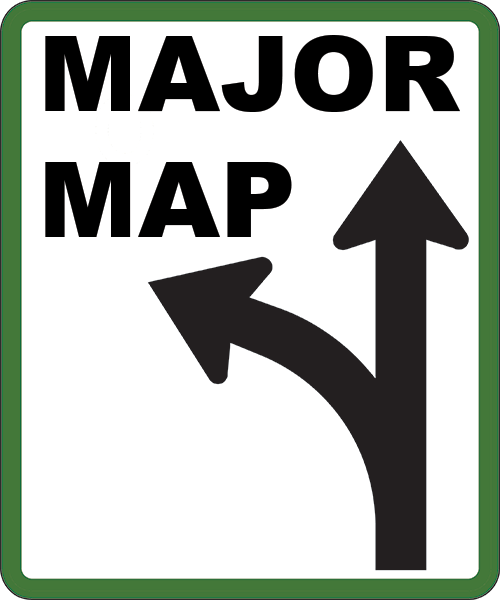2018-2019 Undergraduate Studies Bulletin [Archived Catalog]
Computer Information Systems, B.S.
|
|
 Return to: Programs by College/School
Return to: Programs by College/School
Accreditation
The Computer Information Systems Program is accredited by the Computing Accreditation Commission of ABET, www.abet.org.
Program Educational Objectives for the Computer Information Systems Program
A few years after graduation, computer information systems graduates should be:
- contributing to economic development and society through the development and management of computer information systems for business and research
- advancing in their careers through their knowledge of computer information systems, communication skills and understanding of business and contemporary technological issues
- continuing their professional development through professional study and research
Learning Outcomes
At the time of graduation students should satisfy the following Learning Outcomes
- Students will demonstrate the ability to apply knowledge of computing and mathematics including programming, logic, calculus, probability and statistics, and discrete mathematics.
- Students will demonstrate an ability to analyze a problem and identify and define the computing requirements appropriate to its solution.
- Students will demonstrate the ability to design, implement, and evaluate a computer based system, process, component, or program to meet desired needs.
- Students will demonstrate the ability to function effectively on teams to accomplish a common goal.
- Students will demonstrate an understanding of professional, ethical, legal, security, and social issues and responsibilities associated with computing.
- Students will demonstrate the ability to communicate effectively, both orally and in writing, with a range of audiences.
- Students will demonstrate the ability to analyze the local and global impact of computing on individuals, organizations, and society.
- Students will demonstrate recognition of the need for and be able to engage in continuing professional development.
- Students will demonstrate the ability to use current techniques, skills, and tools necessary for computing practice.
- Students will demonstrate knowledge of business organizations and their use of information systems.
Major Map
A major map is a layout of required courses in a given program of study, including critical courses and suggested course sequences to ensure a clear path to graduation.
Major maps are only a suggested or recommended sequence of courses required in a program of study. Please contact your academic advisor for assistance in the application of specific coursework to a program of study and course selection and planning for upcoming semesters.

Computer Information Systems, BS
Degree Requirements (121-131 Hours)
See College of Engineering and Computing for entrance requirements, progression requirements, and special academic opportunities.
In addition to the general education requirements of the College of Engineering and Computing, a grade of C or better is required in all CSCE courses applied to the degree and in either MATH 174 or MATH 374. All required CSCE courses and courses taken as major electives are major courses and may not be counted toward a minor or application area. All other required courses and electives may be used for a minor or application area as appropriate. CSCE 101 and 102 are not major courses and may not be used for major credit.
- Carolina Core (34-44 Hours)
- Other General Education (21 Hours)
- Lower Division Computing (15 Hours)
- Computer Information Systems Major (27 Hours)
- Minor in Business Information Management (24 Hours)
|
1. Carolina Core (33-46 Hours)
CMW: Effective, Engaged, and Persuasive Communication: Written Component (6 Hours)
ARP: Analytical Reasoning & Problem-Solving (7-8 Hours)
SCI: Scientific Literacy (8 Hours)
- Any approved Carolina Core SCI courses, must include two labs
AIU: Aesthetic and Interpretive Understanding (3 Hours)
- Any approved Carolina Core AIU course
GFL: Global Citizenship and Multicultural Understanding: Foreign Language (0-6 Hours)
- Score two or better on foreign language placement test; or complete the 109 and 110 courses in FREN, GERM, LATN or SPAN; or complete the 121 course in another foreign language.
GHS: Global Citizenship and Multicultural Understanding: Historical Thinking (3 Hours)
- Any approved Carolina Core GHS course
GSS: Global Citizenship and Multicultural Understanding: Social Sciences (3 Hours)
- Any approved Carolina Core GSS course
CMS: Effective, Engaged, and Persuasive Communication: Spoken Component (3 Hours)
VSR: Values, Ethics and Social Responsibility (1 Hour)
INF: Information Literacy (0-3 Hours)
- Approved overlay or stand-alone Carolina Core INF course.
2. Other General Education (21 Hours)
English Elective (3 Hours)
Mathematics Electives (9 Hours)
3. Lower Division Computing (15 Hours)
4. Computer Information Systems Major (27 Hours)
Required Courses (24 Hours)
Major Elective (3 Hours)
Choose from CSCE 317 or other approved CSCE courses numbered 500 and higher. A list of acceptable courses is also maintained in the department office and on its website.
5. Minor in Business Information Management (24 Hours)
Required Courses (18 Hours):
Electives (6 Hours):
Choose any two of the following courses:
Academic Standards
Entrance Requirements
See the College of Engineering and Computing section of this bulletin for entrance requirements and special academic opportunities.
Minimum Course Grades
The Computer Information Systems B.S. program requires that a grade of “C” or better be earned in each of the following courses: ENGL 101 , ENGL 102 , MATH 122 or MATH 141 , MATH 174 or MATH 374 , and all CSCE courses applied to the degree.
Program GPA
Program GPA requirement policies are described in the College of Engineering and Computing section of this bulletin. For the purpose of these policies, the following courses are used to determine the Program GPA for the Computer Information Systems B.S. program: all Lower Division Computing courses, Computer Information Systems Major courses, Computer Information Systems Electives, CSCE 145, CSCE 390, MGSC 390, MGSC 490, and MGSC 590.
Exclusions
No Lower Division Computing or Computer Information Systems Major course may be counted toward a minor. All other degree-required courses and electives may be used for a minor as appropriate. CSCE 101 and CSCE 102 are not major courses and may not be used for degree credit.
|